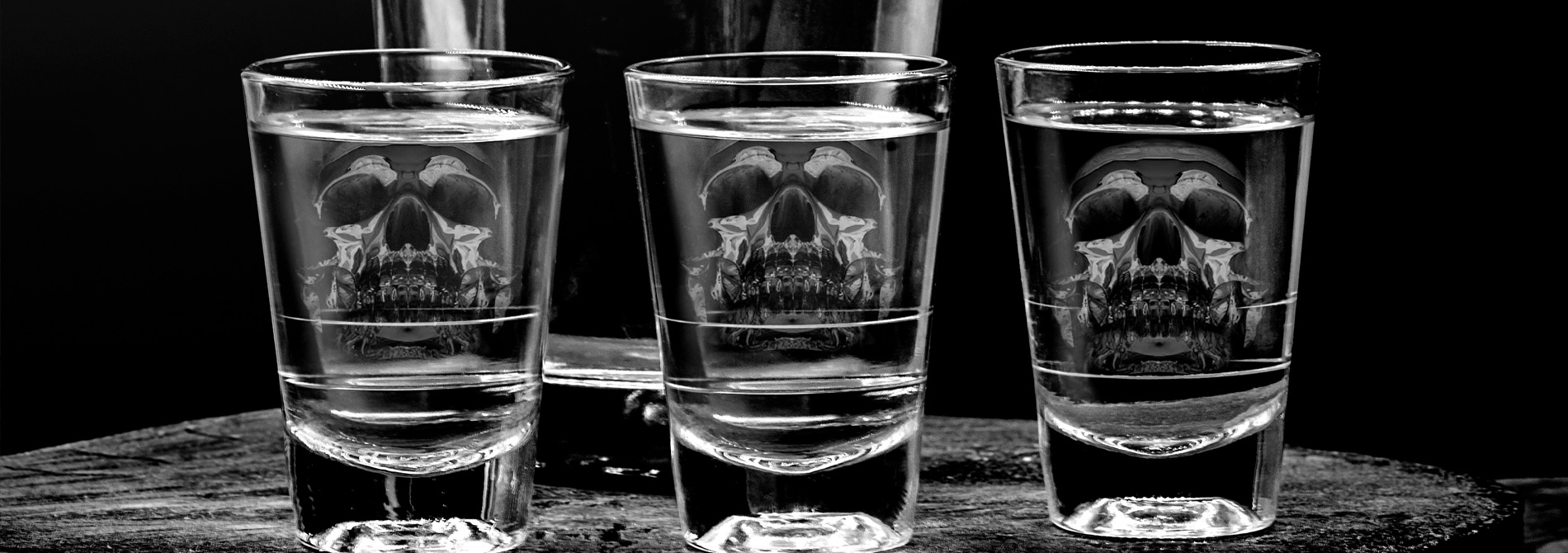The decision to seek help for alcohol misuse is an important one, as problem drinking can lead to fatal consequences. If you have been contemplating how to get sober and stay sober, it’s important to recognize the dangers that continued drinking presents to your physical and mental well-being. In this blog post, we’ll discuss how alcohol compares to fentanyl in its mortality rate, how COVID-19 has shaped recent alcohol deaths, and why medical detox is a must for the problem drinker.
Alcohol misuse can lead to death through health complications and various other ways. Fatal results can come from alcohol poisoning, injuries, or respiratory issues when alcohol is mixed with opioids or other medications. Over time, the threat of liver disease and weakened immunity can also have life-threatening consequences. While deaths from fentanyl use have grabbed more headlines lately, alcohol-related deaths remain atop the list of fatalities related to substance use. Signs of a drinking problem include continued alcohol misuse despite health issues, drinking alone, and increased tolerance. If you know someone who has a drinking problem, encourage them to start with a medially-managed detox before beginning treatment.
If you or a loved one need help, call our admissions team today at 561-841-1033.Alcohol-Related Deaths vs. Fentanyl Deaths
The medical journal JAMA Network reported findings on alcohol-related deaths late in 2022. According to research results, excessive alcohol usage was responsible for 1 in 5 fatalities among adults aged 20 to 49 in the United States. The report also mentioned that one in every eight deaths among those aged 20 to 64 was caused by alcohol. For broad figures, we can look to the National Institute of Health (NIH), which estimates annual alcohol-related deaths to be more than 140,000 (roughly 97,000 men and 43,000 women).
How do those figures compare to the more recent threat of the synthetic opioid known as fentanyl? The number of opioid-related deaths has skyrocketed, dipped, then increased again in recent years. The NIH estimates deaths from fentanyl and synthetic opioids (other than methadone) took 70,601 lives due to overdose in 2021. That same year, the number of reported deaths involving prescription opioids totaled 16,706. Still, these numbers are far under those of alcohol-related deaths in America.
Covid and Alcohol Deaths
According to the Centers for Disease Control and Prevention, the start of the COVID-19 pandemic and the eventual lockdown contributed to alcohol-related deaths in the years ahead. The CDC figures are startling, too. In the first year of the pandemic, alcohol-related deaths rose by 26% compared to numbers at or below 7% since the turn of the century. Women between the ages of 35-44 appear to be most affected in the CDC report. Alcohol-related deaths for this gender and age group increased to 42%. Drinking alone isn’t the only factor in these deaths. According to the CDC data, liver illness was the top cause of alcohol-related deaths, followed by mental and behavioral health conditions such as withdrawal. Acute pancreatitis, an inflammatory pancreatic disorder, also claimed the lives of people with other underlying health concerns.
What Does Problem Drinking Look Like?
They lose control when drinking. A loved one who has a drinking issue may struggle to limit their alcohol intake and may find it difficult to quit or manage their drinking once they begin.
They neglect responsibilities. A loved one with a drinking issue may routinely ignore or fail to meet responsibilities at work, school, or home due to alcohol consumption. Poor work performance, absences from work, neglecting household duties, or ignoring loved ones are all signs of a need for sobriety help.
Continued Use Despite Negative Consequences: A loved one with problem drinking may continue to consume alcohol even when it causes physical, mental, legal, and financial issues. These may include injuries from intoxication, increased depression symptoms, arrests for disorderly behavior in public, and loss of income from missing work frequently.
Cravings and Preoccupation: A loved one who is addicted to alcohol may have a strong urge to consume it. These cravings can mean spending a large amount of time daily thinking about drinking and preparing for the next drink.
Increased Tolerance: Your loved one may have developed a higher tolerance to alcohol, where larger amounts are needed to achieve the desired effect. It’s evident when they consume high amounts every time they drink.
Withdrawal Symptoms: Your loved one may experience withdrawal symptoms such as nausea, sweating, anxiety, shakiness, or insomnia when attempting to cut down or stop drinking. It may prompt them to start the day with a drink to reduce the discomfort of these symptoms.
Social Isolation: Your loved one may abandon social circles, only spend time with people who also drink heavily, or start to drink alone.
Continued Drinking Despite Chronic Health Issues: Your loved one may ignore or downplay the negative impact of alcohol on their existing medical conditions or neglect the risks of mixing alcohol with prescription medication.
Loss of Interest in Hobbies and Activities: Your loved one may lose interest in activities, hobbies, or social time they once enjoyed if those occasions don’t include alcohol or if they feel their excessive drinking would be easily seen.
When to Seek Help
Seeking treatment for alcoholism is a critical step toward treating the problem and restoring your health. If you have had physical or mental health problems as a result of alcohol consumption, or your alcohol consumption starts interfering with your everyday life, duties, and general functioning, it’s time to get help. If your attempts to stop drinking have led to nausea, tremors, anxiety, sleeplessness, or other withdrawal symptoms, your first step in seeking treatment should include a medically-supervised detox. Medically-supervised detox offers 24/7 monitoring, proper nutrition, and more to allow you to experience withdrawal symptoms safely. As alcohol withdrawal can lead to life-threatening conditions, attending a medical detox is always recommended to end alcohol use.
Hanley Center is a well-known care provider offering a range of treatment programs targeting the recovery from substance use, mental health issues, and beyond. Our primary mission is to provide a clear path to a life of healing and restoration. We offer renowned clinical care for mental illnesses and have the compassion and professional expertise to guide you toward lasting wellness. For information on our programs, call us today: 561-841-1033.




